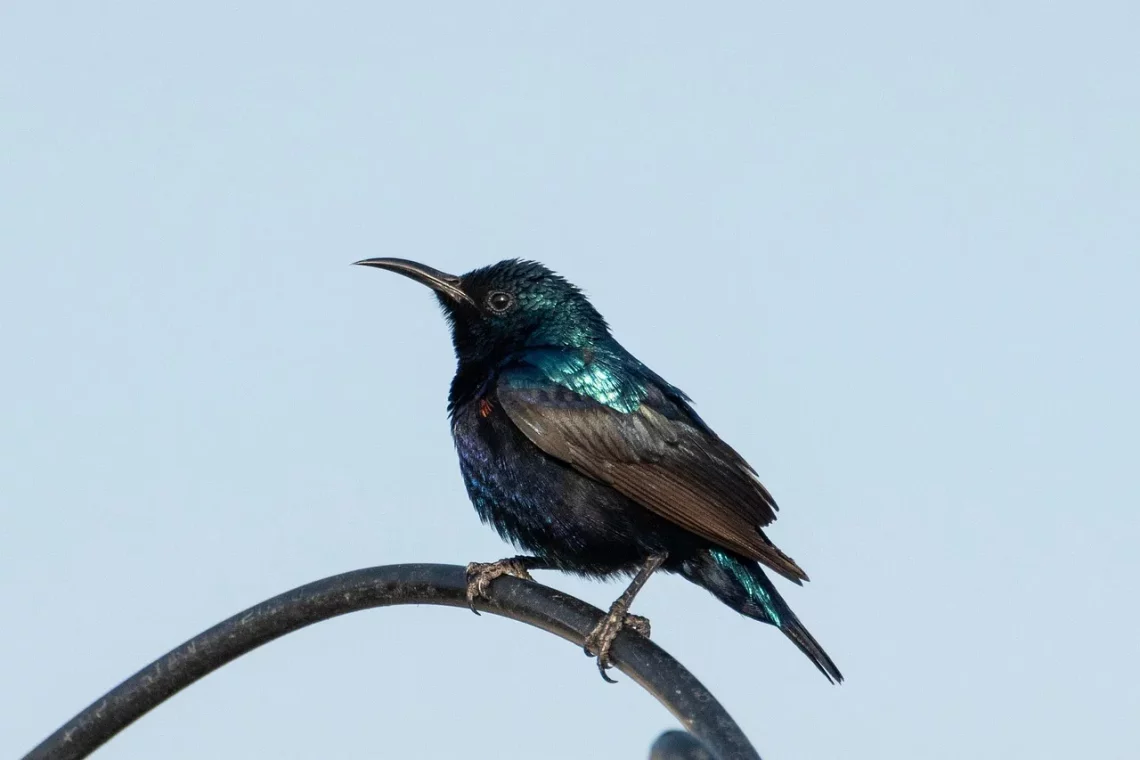
Effective Bird Mite Treatment Solutions for Your Feathered Friends
Bird mites are tiny arachnids that can cause significant distress to both birds and their owners. These minuscule pests are often mistaken for other types of mites or insects, but their impact on the health and well-being of your feathered friends can be profound. They thrive in environments where birds nest, feeding on the blood of their hosts. This can lead to a range of problems, including irritation, skin infections, and even severe distress in birds. Not only do bird mites affect the birds themselves, but they can also invade homes, leading to a frustrating battle for pet owners and families.
Understanding the life cycle of bird mites is crucial for effective treatment and prevention. These pests reproduce rapidly, making timely intervention essential to safeguard the health of your birds. Whether you have a single pet bird or a flock, recognizing the signs of an infestation is the first step in addressing the issue. Common symptoms include excessive scratching, feather loss, and visible mites on the skin or within the bird’s environment. As a responsible pet owner, it is vital to stay informed about effective treatment solutions to ensure a safe and healthy living space for your avian companions.
Identifying Bird Mite Infestations
Identifying a bird mite infestation is the first crucial step in addressing the problem. Bird mites are often found in the nesting areas of birds, and they can easily spread to your home. Signs of an infestation can vary, but some common indicators include excessive scratching, feather loss, and the presence of tiny, moving specks on the bird’s skin or within its cage.
When inspecting for mites, pay close attention to areas where your birds spend most of their time. Check the feathers for any signs of irritation or inflammation, which may indicate that the mites are feeding. Additionally, observe the behavior of your birds; if they seem unusually agitated or lethargic, it might be time to investigate further.
It’s also important to consider that bird mites can survive without a host for a certain period. This means that even if you remove the birds from the affected area, the mites may still linger. Therefore, a thorough inspection of the living environment is necessary. Look for nests, feathers, and other debris that may harbor these pests.
If you suspect a bird mite infestation, acting quickly is key. Early detection and intervention can prevent the situation from escalating. Once you confirm the presence of mites, you can begin exploring various effective treatment options to alleviate the problem for your feathered friends.
Natural Remedies for Bird Mite Control
Natural remedies can be an effective way to combat bird mites while ensuring the safety of your pets and household. One of the most common natural treatments involves the use of essential oils. Oils such as neem, tea tree, and lavender are known for their insect-repelling properties. To use these oils, dilute a few drops in water and spray the solution in areas where mites may be present, such as the bird’s cage and surrounding environment. Be cautious with the amount used, as some birds may be sensitive to strong scents.
Another natural approach is to maintain a clean environment. Regularly cleaning your bird’s cage, toys, and accessories can help eliminate mites and prevent infestations. Use a mixture of vinegar and water to wipe down surfaces, as vinegar is known for its natural disinfectant properties. Ensure that you thoroughly dry the area afterward to avoid any moisture that could contribute to further pest problems.
Diatomaceous earth is another natural remedy that can be beneficial in controlling bird mites. This fine powder, made from crushed algae, can be sprinkled in areas where mites are present. It works by dehydrating the pests, ultimately leading to their demise. However, it’s important to use food-grade diatomaceous earth, as other types may contain harmful additives.
While natural remedies can be effective, it’s essential to monitor the situation closely. If you find that these methods are not yielding results or if the infestation worsens, it may be necessary to consider more intensive treatments or consult a professional pest control service.
Commercial Treatments for Bird Mites
If natural remedies fall short in resolving a bird mite infestation, commercial treatments may be necessary. There are several products available on the market specifically designed to target bird mites. These treatments often contain insecticides that can effectively eliminate adult mites and their eggs.
When selecting a commercial treatment, it’s crucial to choose products that are safe for use around birds. Look for those labeled as bird-safe or specifically formulated for avian use. Always read the label carefully and follow the manufacturer’s instructions for application to ensure the safety of your feathered friends.
Insecticide sprays can be applied directly to the areas where mites are found, including cages, nesting areas, and surrounding environments. Additionally, some products come in the form of powders or foggers that can cover larger areas. These can be particularly useful for extensive infestations, as they can penetrate hard-to-reach spots.
It’s also a good idea to consult with a veterinarian or an avian specialist when considering commercial treatments. They can provide guidance on the most effective products and help ensure that you are taking the right steps to protect your birds’ health.
After applying any commercial treatment, it is essential to monitor your birds closely for any signs of distress or adverse reactions. If you notice any unusual behavior or health issues, contact a veterinarian immediately for assistance.
Preventing Future Bird Mite Infestations
Prevention is always better than cure, especially when it comes to bird mite infestations. Establishing a routine to keep your birds and their environment clean can significantly reduce the risk of future infestations. Regularly inspect your birds for any signs of mites and maintain a clean living space by cleaning cages, perches, and toys frequently.
Another preventive measure includes ensuring that your birds have a healthy diet. A well-nourished bird is better equipped to resist pests and recover from infestations. Consult with an avian veterinarian to determine the best diet for your birds, which should include a variety of seeds, fruits, and vegetables.
Consider using preventive treatments, such as natural repellents, even when there are no visible signs of mites. Regularly applying diluted essential oils can create an unwelcoming environment for these pests. Additionally, ensure that any new birds introduced to your home are thoroughly checked for mites before they meet your existing pets.
Lastly, keeping your home environment clean and free of clutter will help minimize the chances of a mite infestation. Seal any cracks or openings in your home where mites could enter and establish a presence. Regularly vacuum and dust your living space, especially areas where your birds are kept.
By taking proactive steps, you can create a safer environment for your feathered friends and significantly reduce the likelihood of encountering bird mites in the future.
—
**Disclaimer:** This article is not intended as medical advice. If you suspect that your birds are experiencing health issues, please consult a qualified veterinarian for proper diagnosis and treatment.




